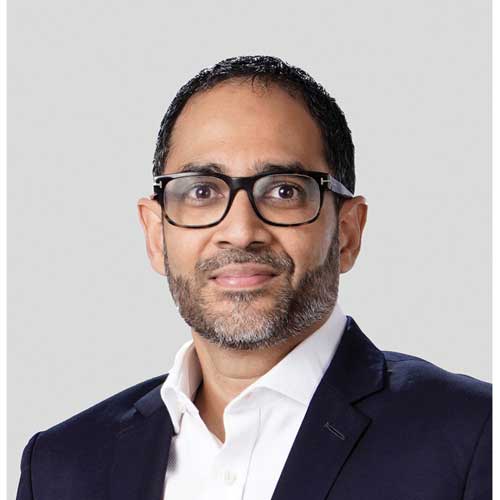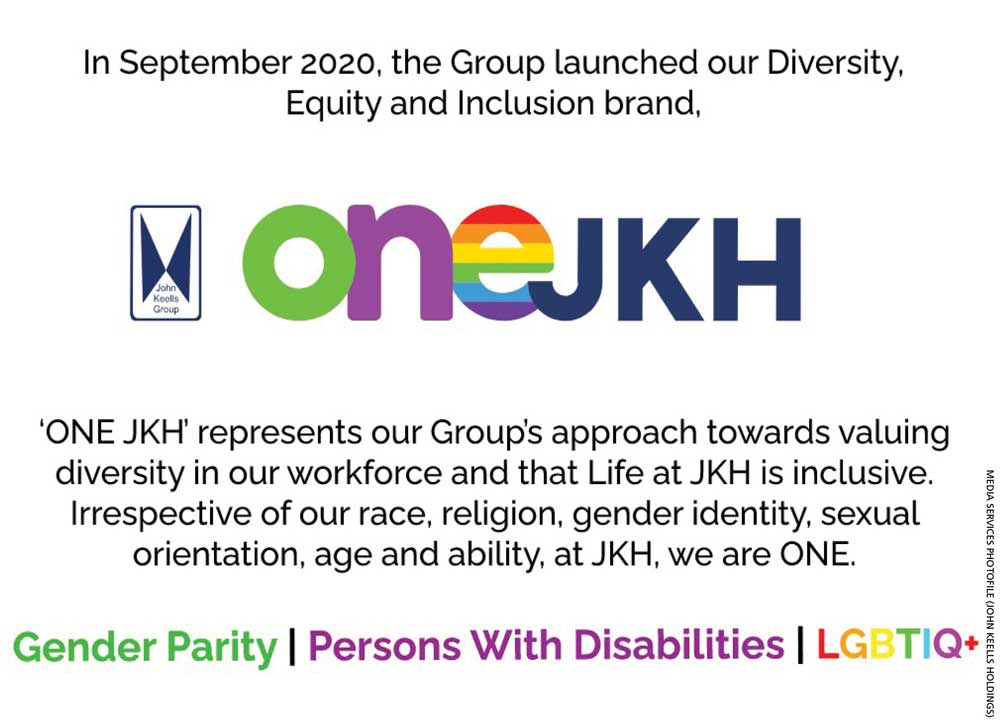JOHN KEELLS HOLDINGS

Deputy Chairperson
Group Finance Director
Q: What does it mean to be ranked among the top 125 listed companies in Sri Lanka in the latest Transparency in Corporate Reporting Assessment (TRAC) by Transparency International Sri Lanka (TISL)?
A: At John Keells, we place emphasis on nurturing a robust corporate governance framework, integral to fostering sustainable growth within our group.
Our commitment to transparency, accountability and ethical conduct forms the bedrock of our governance ethos, ensuring continuous value generation for all stakeholders as well as for instilling integrity and trust. This governance philosophy is institutionalised across all our businesses and is the foundation for many of the group’s achievements.
Being ranked No. 1 for the fourth consecutive year in the Transparency in Corporate Reporting Assessment with a 100 percent score for transparency in disclosure practices is testimony to the group’s efforts to continuously strive to improve and enhance governance disclosures, mirroring global best practices, evolving regulatory landscapes and dynamic stakeholder expectations.
We are humbled by the independent validation of our standards of relevant disclosures, and wish to thank TISL for its efforts in improving the standards of reporting and transparency in the country.
Q: How do you rate the importance of organisations integrating more transparency and accountability into their reporting processes?
A: It’s extremely important as transparency and accountability in reporting foster a foundation of trust with stakeholders, improving credibility, and strengthening an organisation’s legitimacy and reputation.
Openly reporting on activities and challenges builds public trust and demonstrates a commitment to ethical practices. In today’s information age, such aspects will aid organisations in differentiating themselves from a stakeholder point of view – including attracting capital.
Moreover, transparent reporting improves internal governance. By being accountable for actions, employees and other stakeholders are more likely to make ethical choices, thereby promoting a culture of compliance.
Good governance in turn allows for better risk management as potential issues can be identified and addressed proactively. In essence, having transparency and accountability is a win-win for both the organisation and its stakeholders.
Q: What are the most significant challenges that Sri Lanka has to overcome in its quest to reduce corruption?
A: Corruption acts as a barrier to investment – particularly foreign investment – hampering economic growth and undermining the rule of law. From a business perspective, corruption also functions as an indirect burden on enterprises, hindering their performance, diminishing profitability, challenging equality through the lack of a level playing field and degrading resource quality.
Sri Lanka’s ranking in Transparency International’s 2023 Corruption Perceptions Index stood at 115th out of 180 countries with a low score of 34 percent.
Sri Lanka has been actively working to combat corruption such as with the implementation of the Anti-Corruption Act No. 9 of 2023. Although this is encouraging, achieving lasting change requires also addressing deeply ingrained societal perceptions and strengthening key institutions.
Cultural norms may have led some to view informal practices such as facilitation payments as commonplace, potentially hindering efforts to challenge them. Ensuring that the law enforcement and judiciary have adequate resources and autonomy is crucial for effective investigations and prosecutions.
Fostering a more transparent environment through open government initiatives – such as freedom of information laws and public disclosure of financial information by officials – will also deter corrupt practices.
Achieving significant progress relies on a sustained commitment from all stakeholders including political leadership that prioritises anti-corruption efforts and is willing to address potential resistance. While Sri Lanka has embarked on this path, continued collaboration across all elements of society is essential for long-term success.

Q: Could you cite a few examples of best practices in your group regarding reporting on gender and non-discrimination policies?
A: A holistic governance approach is essential to enable a sustainable business model, with aspects such as gender and non-discrimination being integral elements. We have consistently embraced diversity in all respects including gender. We also have a strict policy against discrimination and any form of harassment.
We recognise that stakeholders thrive when treated with respect, dignity and fairness. To foster inclusivity, we continue to implement initiatives aimed at cultivating an environment based on mutual respect and trust.
Our ONE JKH brand consolidates our endeavours toward diversity, equity and inclusion, affirming our stance against discrimination and commitment to equal opportunities.
From a reporting perspective, we publicly state our stance on equal opportunities through various communication channels including our annual report, which makes an explicit commitment about our zero tolerance for discrimination and harassment on any grounds including gender.
For example, all our vacancy advertisements use gender neutral terminology. This endeavour reinforces that John Keells Holdings is an equal opportunity employer and invite all suitably qualified applicants to join our team.
The group has various mechanisms and channels in place to ensure that any stakeholder of the group has the means to report harassment with no fear of retaliation. Such channels are publicly stated and made available.
Furthermore, in dealing with complaints, a comprehensive process is followed with the highest degree of confidentiality.
Telephone: 2306000 | Email: jkh@keells.com | Website: www.keells.com



